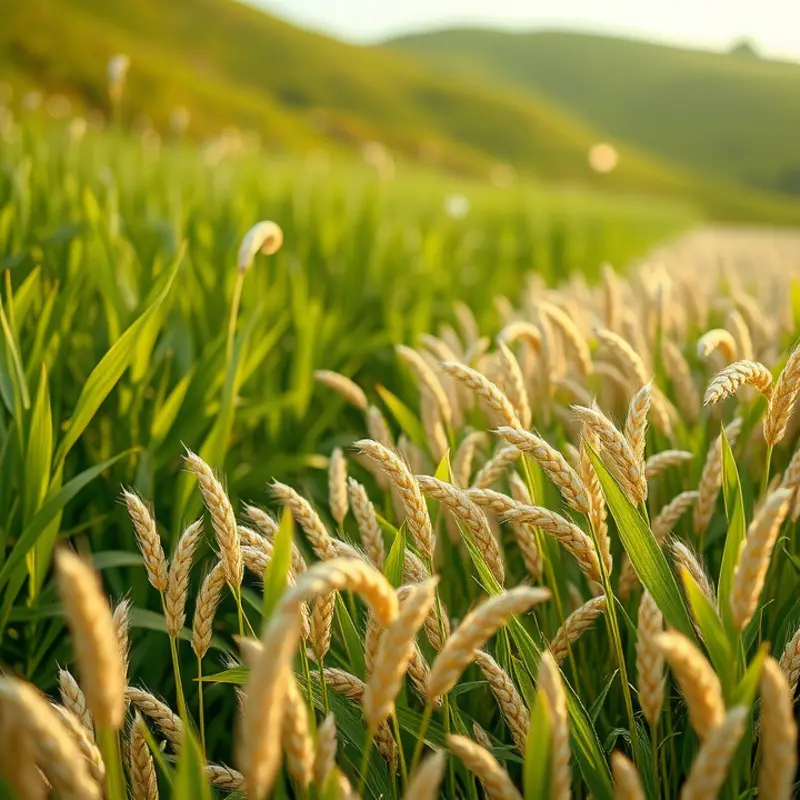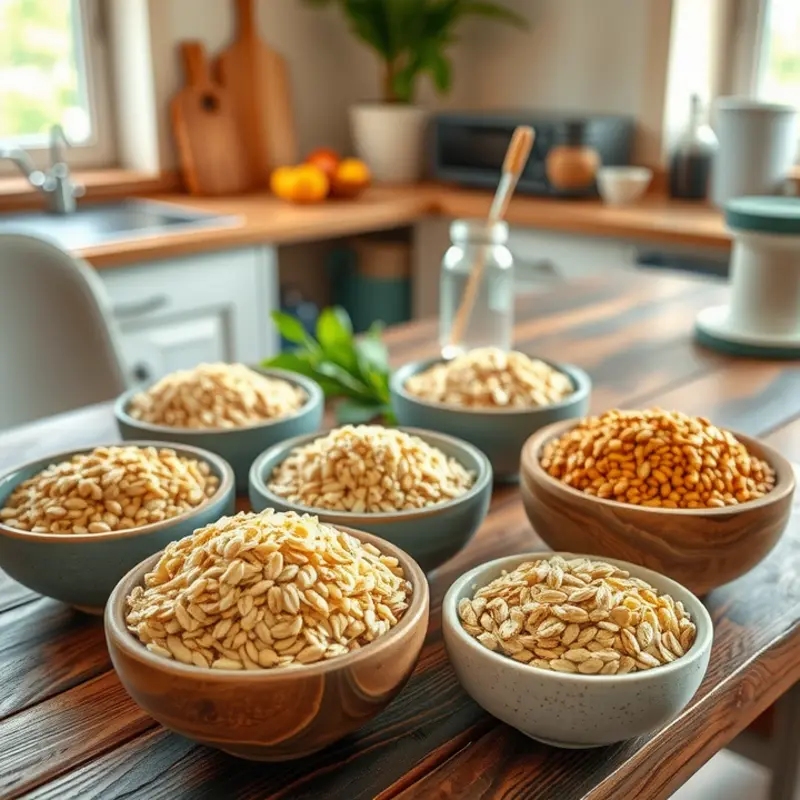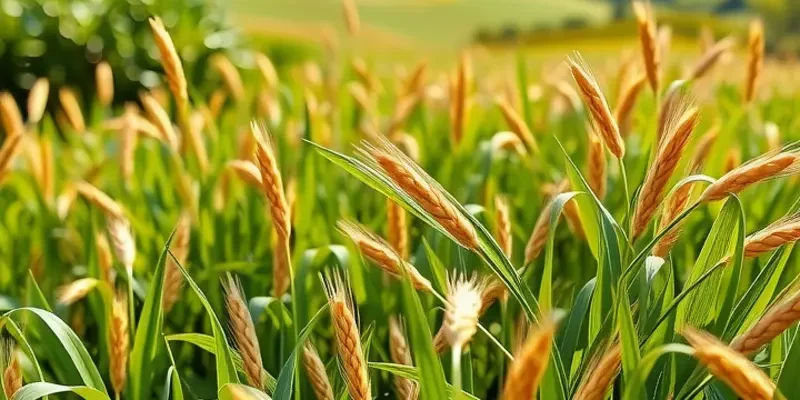Choosing sustainable grains and cereals is a powerful way to reduce our environmental impact. These eco-friendly options not only nourish our bodies but also support farming practices that protect the planet. As we shift toward a more conscious lifestyle, understanding the benefits and sourcing of sustainable grains becomes essential. This journey can transform our kitchens and communities, fostering a healthier future for everyone.
The Importance of Sustainable Grains

Choosing sustainable grains and cereals is essential for our health and the planet’s well-being. Traditional grain farming practices often lead to environmental challenges such as soil degradation, water pollution, and increased carbon emissions. These issues arise from excessive use of chemical fertilizers, pesticides, and intensive land use practices.
Soil degradation, a significant outcome of traditional agricultural methods, reduces soil fertility and its ability to retain water. This not only affects crop yields but also leads to the loss of vital microorganisms that support plant health. Water pollution from runoff containing agricultural chemicals contaminates water sources, affecting aquatic life and human health.
The carbon footprint of conventional grain production is another pressing concern. High energy inputs required for chemical synthesis, machinery operation, and transportation contribute substantially to carbon emissions. In contrast, sustainable grains can significantly mitigate these impacts by employing eco-friendly farming techniques.
Grains like quinoa, farro, and spelt offer environmentally-friendly and nutritious alternatives. These grains are often grown using methods that promote soil health, such as crop rotation and organic farming practices. Quinoa, for instance, is renowned for its complete protein profile, making it an excellent dietary addition. Its cultivation in diverse climates also supports agricultural biodiversity.
Similarly, farro, an ancient grain, is known for its resilience to pests and diseases, reducing the need for chemical interventions. Its rich fiber content benefits digestive health and aids in maintaining stable blood sugar levels. Meanwhile, spelt offers high nutritional value, with significant amounts of protein and essential nutrients like iron and magnesium.
Supporting sustainable grains also fosters biodiversity. It reduces the dominance of a few staple crops and encourages the diversification of what we grow and consume. This diversity is crucial in adapting agriculture to changing climates and ensuring food security.
Moreover, integrating these grains into your diet can enhance well-being. They are often rich in essential nutrients, antioxidants, and phytochemicals. These components help combat chronic diseases and promote overall health. By choosing sustainable grains, you support not only personal health but also environmental stewardship.
For those interested in complementing sustainable grains with other healthy foods, the Mediterranean Chickpea Salad offers a delightful burst of freshness and flavor that aligns with a balanced and environmentally-conscious diet.
The shift towards embracing sustainable grains and cereals is a step toward reducing our carbon footprint, enhancing biodiversity, and promoting a healthier lifestyle. It’s an impactful choice that resonates with the broader goals of planet preservation and personal wellness.
Choosing and Cooking with Sustainable Cereals

Incorporating sustainable cereals into your daily diet opens up a world of culinary possibilities while supporting environmental health. Not only are grains like brown rice, millet, and oats versatile, but they are also packed with nutrients that contribute to a well-balanced diet. Let’s dive into why and how you should make these grains a staple in your kitchen.
Brown rice serves as an excellent substitute for refined white rice, offering more fiber, vitamins, and minerals. Its nutty flavor and chewy texture complement a variety of dishes. Try a simple pilaf: sauté onions and garlic in olive oil, add brown rice, and cook it in vegetable broth until tender. Add your choice of seasonal vegetables and enjoy a hearty meal.
Millet is another ancient grain making a modern comeback. Often overlooked, millet is both gluten-free and rich in magnesium, phosphorus, and antioxidants. Cook millet similarly to quinoa in a 2:1 water-to-grain ratio until fluffy. Use it as a base for salads or mix it with roasted vegetables for a nourishing side dish.
Oats are a breakfast staple known for their heart-healthy benefits. Their versatility shines not only in traditional oatmeal but also in baked goods. Consider making overnight oats: combine rolled oats, almond milk, chia seeds, and your favorite fruits. Let them sit in the fridge overnight for a quick, nutritious breakfast.
To get the most ecological benefit from these grains, source them locally when possible. Supporting local agriculture reduces carbon footprints and bolsters the local economy. Opting for organic varieties further ensures that your choices are free from harmful pesticides, preserving both environmental and personal health.
When cooking, enhance the flavors of these cereals with herbs and spices. A sprinkle of cinnamon on oats, a handful of fresh basil in your millet, or a dash of cumin in brown rice can transform your meals. Explore fermenting brown rice to create a probiotic-rich dish, offering both digestibility and gut health benefits.
For those following a healthy dietary regimen, consider visiting this chickpea salad recipe as a refreshing side that pairs well with sustainable cereals like brown rice or millet, providing a burst of freshness and balance on the plate.
Ultimately, embracing these sustainable cereals involves creativity and a conscious effort to align eating habits with eco-friendly practices. Allow your culinary adventures to not just delight the palate but also contribute positively to the planet. As you explore the endless opportunities with brown rice, millet, and oats, may they inspire vibrant meals and sustainable living.
Final words
Choosing sustainable grains and cereals is a vital step toward a more eco-conscious lifestyle. By opting for these options, we not only nourish our bodies but also support sustainable farming practices that help protect our planet. From quinoa to oats, each choice impacts the environment positively. As you explore these grains, you contribute to a healthier ecosystem. Transform your cooking by embracing these sustainable options, and inspire others in your community to make a difference together. Every small choice adds up to significant change.








